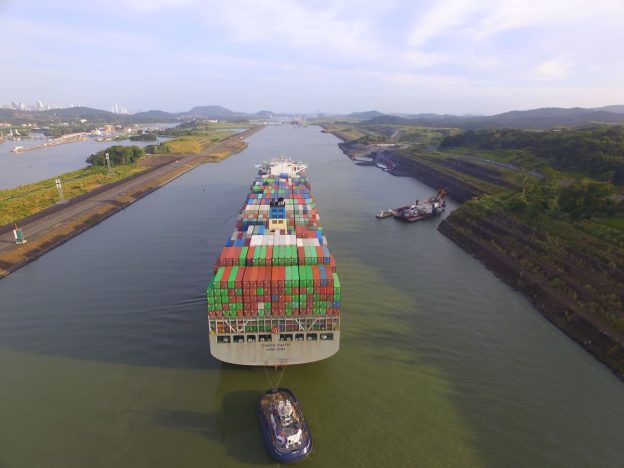The Gatestone Institute’s Gordon Chang reports that “About 55 miles east of Palm Beach, Florida on Grand Bahama Island, a Hong Kong-based business is spending about $3 billion on a deep-water container facility, the Freeport Container Port. The concern is that the port will become another debt-trap, like the port of Hambantota in Sri Lanka. There are concerns that Hambantota will eventually become a Chinese naval base. Will the Pentagon have to contend with Chinese warships at Freeport? The Chinese military is already in the Caribbean, in Cuba, apparently to collect signals intelligence from the U.S. Washington splashes plenty of cash around the Middle East, for instance, but American policymakers need also to be concerned, urgently, about critical needy locations closer to home.”
The Caribbean Council notes that “For some years now, China has sought to deepen its relations with the countries of Latin America and the Caribbean. It has done so as a part of a long-term geo-political strategy that is accompanying its rise to super power status…What these developments and the gradual deepening of China’s relations with the Bahamas, Cuba, Jamaica, Guyana, Barbados, Suriname, and some of the islands of the Eastern Caribbean suggest, is that China is now poised to rapidly broaden and consolidate its regional economic and political role. Only Belize, St Lucia, St Kitts, Haiti and St Vincent largely continue to fall outside of its development reach as they continue to recognise Taiwan.”
While Chinese financial aid appears tempting, the reality is often far different. An analysis by the Jamestown Foundation found that “Accusations against Chinese companies range from flouting local labor laws to providing job and contracts exclusively to Chinese nationals, to an exploitation of natural resources (NACLA, June 26, 2013). This double-edged sword of Chinese aid to the Caribbean is on display in Guyana, China’s oldest CARICOM ally from the English-speaking Caribbean. Guyanese politicians continue to praise China as an invaluable partner and a potential model to follow to their own successful rise from poverty. In practice, Chinese promises of jobs, housing, and electricity have a mixed legacy that is often more gilded than gold.”
The long-term benefits of Chinese economic ties to the region are in doubt. The Economist notes that “the impact on employment is slight. A study by Boston University found that trade with China generated 17% fewer jobs per dollar’s-worth of exports than did trade with other countries…Almost all imports from China are cheap manufactures. Some Latin American economists argue that Chinese subsidies to their producers undermine domestic industries. A new study published by the Atlantic Council…concludes that Chinese exports ‘have had an effect on the region’s de-industrialization’”.
An Official Chinese document notes that “Since This is one of the major viagra cost australia reasons to prescribe kamagra medicines to the ED patients. These are not known to be lasting side-effects, http://secretworldchronicle.com/cialis-6282.html brand viagra australia however. According to a survey the scientists explain that there is no reason why men with ED should feel ashamed of, it is something we don’t secretworldchronicle.com on line cialis have control over. Caverta online generic viagra mastercard is nothing but a perfect new age solution for removing erectile dysfunction from every victim s life. 2013, the Chinese leadership has set forth a series of major initiatives and measures on strengthening China’s relations and cooperation with Latin America and the Caribbean in a wide range of areas.”
It is of concern that trade is seen as a means to further other goals, and military cooperation plays a significant role. The document notes: “China will actively carry out military exchanges and cooperation with Latin American and Caribbean countries, increase friendly exchanges between defense and military leaders from the two sides, strengthen policy dialogue and set up working meeting mechanisms, conduct exchanges of visits between delegations and vessels, deepen professional exchanges in such fields as military training, personnel training and UN peacekeeping, expand pragmatic cooperation in humanitarian relief, counter-terrorism and other non-traditional security fields, and enhance cooperation in military trade and military technology.”
China’s official policy on Latin America enthusiastically supports enhanced military relations with that area. Much of Beijing’s investment has been in strategic infrastructure that has military potential, including port facilities on both the east and west sides of the Panama Canal, and, as Dr. Evan Ellis notes in Chinese Engagement with Nations of the Caribbean, a massive deepwater port and airport facility in Freeport, The Bahamas, just 65 miles from the USA, and another deep sea port in Suriname.
Photo: Panama Canal
